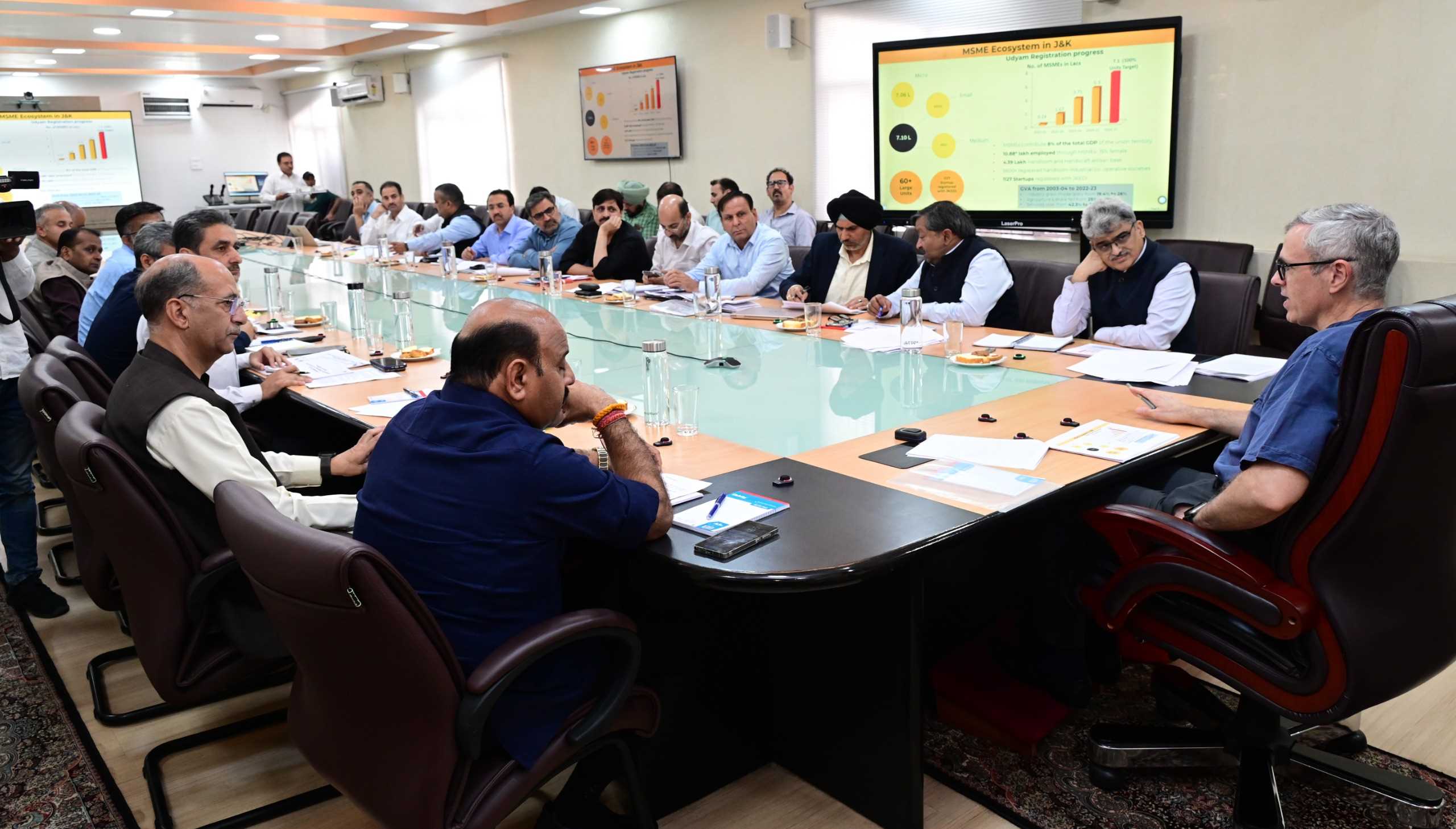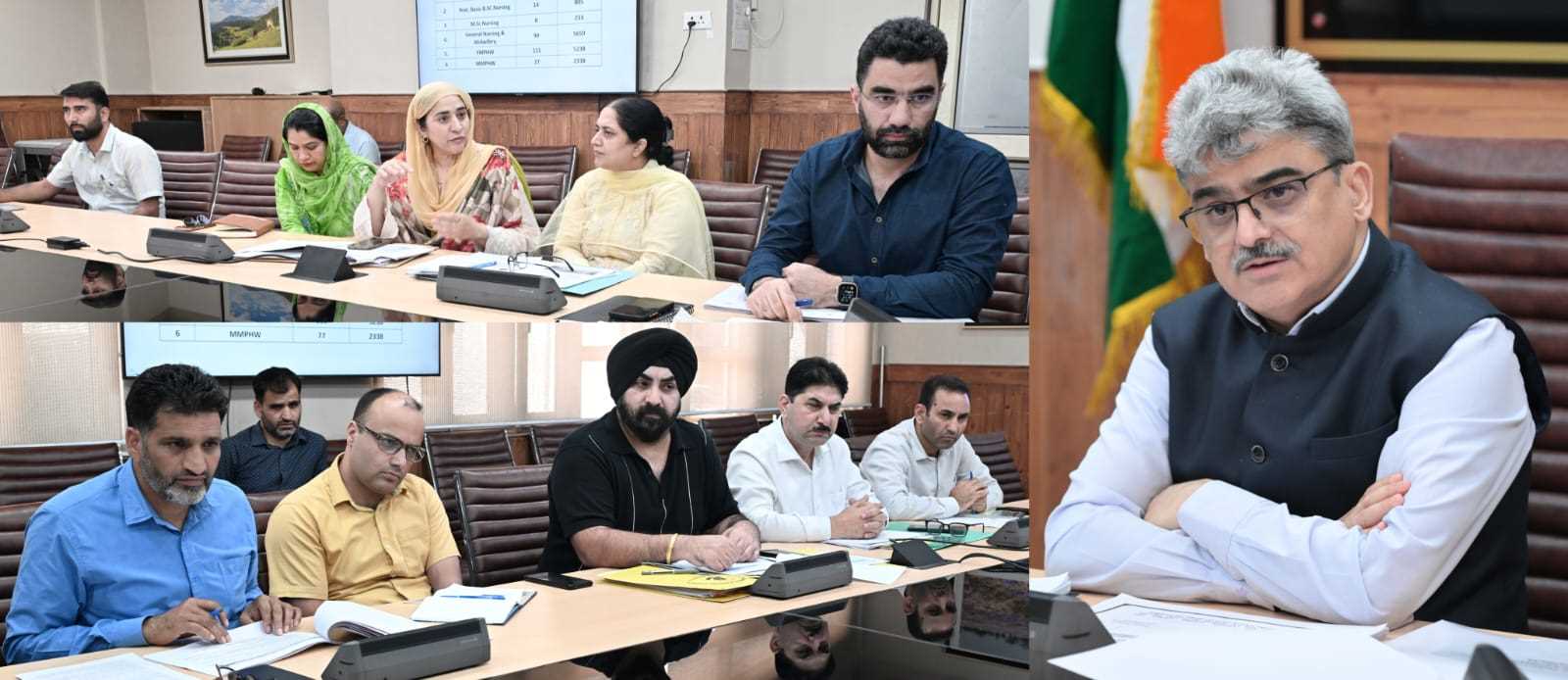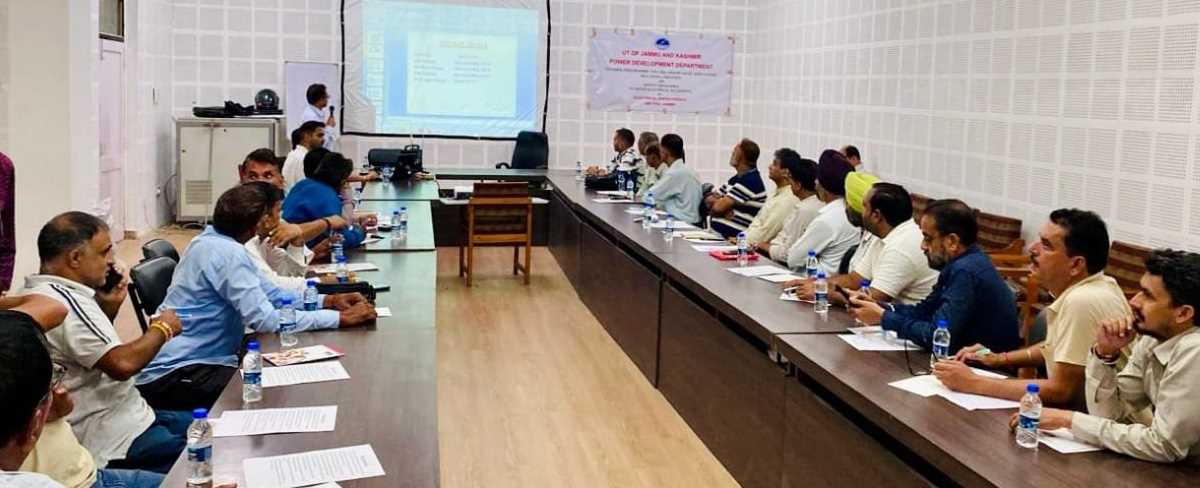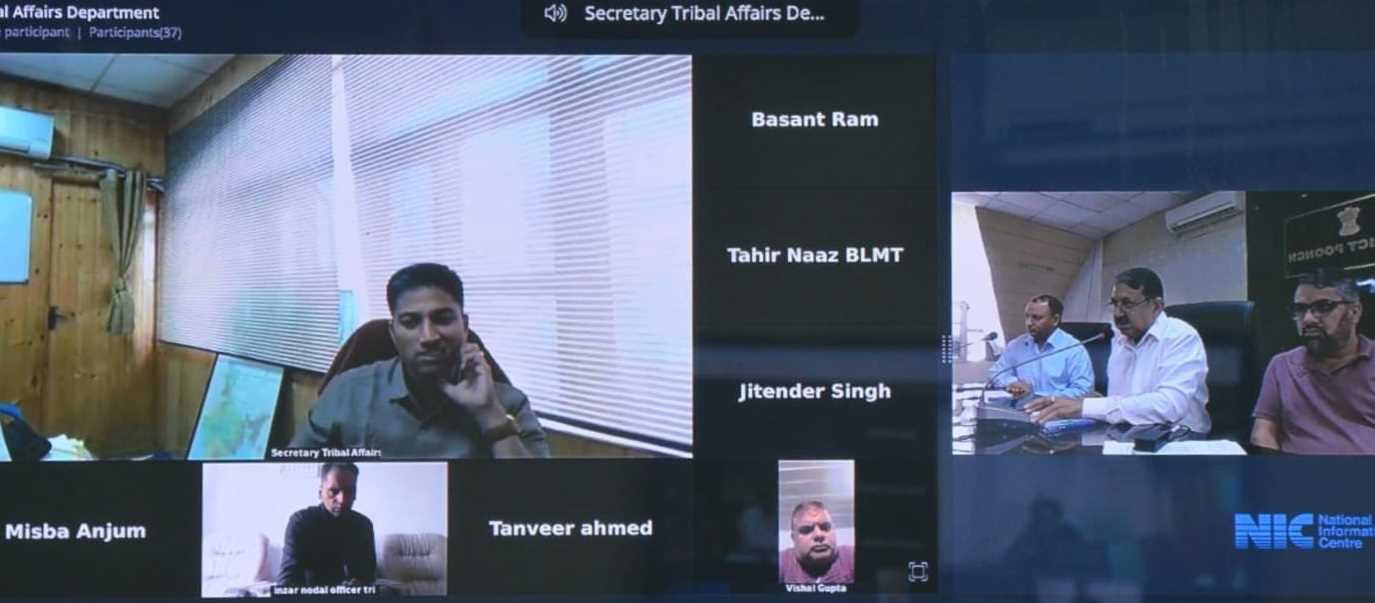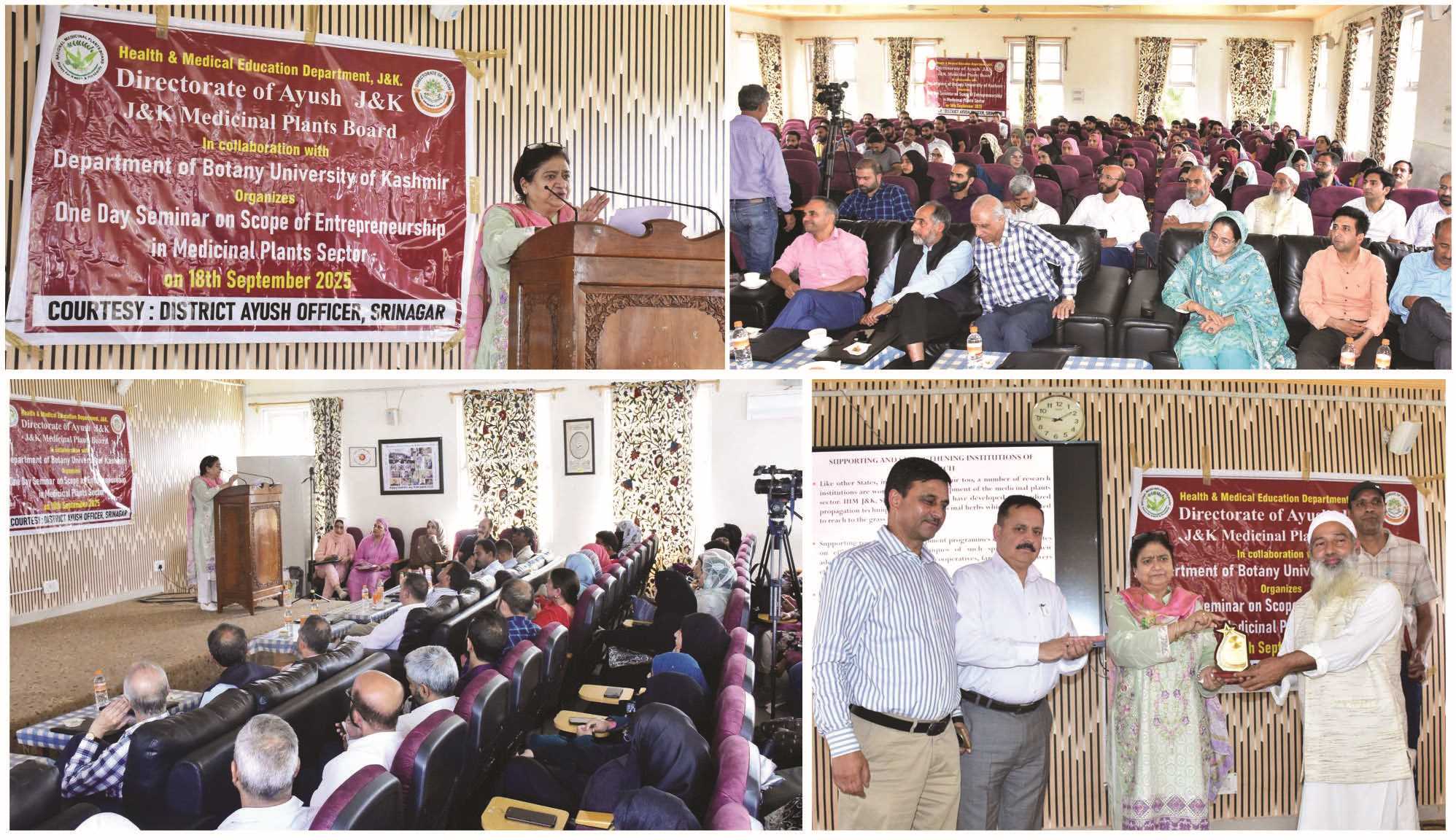Chief Minister Omar Abdullah today directed the Industries & Commerce Department to adopt a proactive and inclusive approach in strengthening Jammu and Kashmir’s industrial ecosystem, with a special focus on employment generation, sustainability and competitiveness.
Chief Minister emphasized the need for handholding of MSME units which are in distress but still revivable with minimal government intervention. He asked officials to identify such units at an early stage so these do not become defunct. “Such units can generate significant employment if supported in time,” he said.
Chief Minister expressed concern on slow progress under capital expenditure during current fiscal particularly under PMEGP & REGP schemes asking the department to at least match the last year’s progress.
Chief Minister also reviewed the New Central Sector Scheme aimed at encouraging new investments and incentives provided under the scheme. CM assessed the claim wise progress achieved under the scheme and called for completion of targets fixed under the NCSS.
He also asked Industries Department to prioritize setting up of industries for which either raw material is readily available or the market is locally available for finished products.
Calling for a review of the land policy in industrial estates, Omar Abdullah stressed on ensuring early allotment of land to Units which have deposited premium but their proposals for land transfer remain in limbo. CM gave directions for early completion of 46 new Industrial Estates and to take up development of existing industrial estates to ensure judicious and productive use of industrial land.
On improving the business climate, the Chief Minister urged the department to explore what J&K can itself do to enhance the Ease of Doing Business, beyond national benchmarks. He further instructed officials to design policies that attract new industries in the wake of new GST rate slabs announced by Central Government, with a clear differentiation of how J&K can uniquely position itself compared to neighboring states.
To ensure stronger policy implementation, Omar Abdullah asked the department to seek structured feedback from new industries that have applied under Single Window Clearance or begun operations under the SWC system, so that operational gaps can be identified and addressed.
With regard to GI certification of crafts, the Chief Minister called for augmenting GI certification testing facilities so that dealers do not suffer due to limited capacity of Handicrafts department, cautioning that without adequate systems in place, the very purpose of GI tagging would be undermined.
“Industrial development in J&K must not only attract investment but also ensure it translates into jobs, livelihoods, and sustainable growth for our youth and artisans,” Omar Abdullah said.
Earlier, Commissioner Secretary Industries & Commerce Vikramjit Singh made a detailed presentation highlighting the department’s progress.
He informed that investment realization in J&K during FY 2024-25 has reached ₹4145 crore, nearly 10 times higher than the pre-2021 average, while the current fiscal (up to August 2025) has already seen ₹4001 crore worth of projects grounded, generating 5,111 jobs in the formal industrial sector. For the first time, multiple units with investment exceeding ₹500 crore have been set up across sectors such as metals, plastics, pharmaceuticals, textiles, and food processing.
The presentation further revealed that MSMEs contribute 8% to J&K’s GDP and employ over 10.88 lakh people, including 15% women. Initiatives such as the MSME Health Clinic, Udyam registration drives across 4914 blocks, and capacity-building programmes under the RAMP scheme have been launched to support this backbone of the economy.
On the startup ecosystem, Singh informed that registrations have surged from just 69 in 2020 to 1,127 in 2025, with a marked shift towards technology and service-based ventures. The meeting was informed that J&K is also set to host a Startup Summit in collaboration with Startup India, MEITY, and SIDBI in October this year in Srinagar.
The meeting was also informed that 4.39 lakh artisans are registered across J&K, with exports more than doubling to ₹1163 crore in 2023-24. Srinagar has been designated as a World Crafts City by the World Crafts Council and recognized by UNESCO under its Creative Cities Network. A QR-based certification mechanism for craft products, the first of its kind globally, has also been introduced.
The review meeting was attended by Deputy Chief Minister Surinder Kumar Choudhary, who is also Minister Incharge Industries & Commerce, Advisor to the CM Nasir Aslam Wani, Chief Secretary Atal Dulloo, Additional Chief Secretary to the CM Dheeraj Gupta, Heads of the Departments of Industries & Commerce and other senior officers.
